#Enrique Nieto
Explore tagged Tumblr posts
Link
#body love#persephades#steven x connie#blindspot#enrique nieto#minepri#suflet#motivation#black cats#ginger hair#moda masculina#sexually#quotation#video essay
64 notes
·
View notes
Text

#enrique nieto#the cry of the wolfman#pocket chiller library#1970s#uk comics#british comics#werewolf#comic panels
320 notes
·
View notes
Link
#7babytink7#er#nail marks#marriage#enrique nieto#sibling#swear word#rave girls#reflejos#apocalypse tw
51 notes
·
View notes
Text

120 months, 43 students: The Mexican government is guilty
Until there is justice, there will be no peace! Ten years of struggle for truth and justice.
Statement from ARE (Association of Raza Educators), Armadillos NUMM, Union del Barrio, Mecha SDCC, 43 San Diego.
On the night of Sept. 26, and in the early morning of Sept. 27, 2014, a criminal organization with the support of municipal, state, and federal law enforcement (mostly the army) kidnapped and disappeared 43 students and murdered 6 more people in Iguala, Guerrero, Mexico.
The president, Enrique Pena Nieto, wanted to close the case quickly. To do so, he developed a theory known as “the historical truth,” which was riddled with falsehoods and rejected by national and international experts.
AMLO (President Andres Manuel Lopez Obrador) promised to resolve the case when he met with the relatives of the 43 while he was still campaigning and then reaffirmed his promise as president. Now, at the end of his mandate, we denounce AMLO for not honoring his promise, for sabotaging the investigation, and for protecting the accomplices in the disappearance of the 43, the armed forces.
#43 students#assassination#massacre#Mexico#anniversary#Guerrero#AMLO#enrique nieto#San Diego#Union del Barrio#Struggle La Lucha
33 notes
·
View notes
Text

“Gothic”
Enrique Nieto
12 notes
·
View notes
Text

Haunted #34 (February 1978) cover by Enrique Nieto.
8 notes
·
View notes
Text

9 notes
·
View notes
Text

#Crown Princess Mary#Queen Mary#Angelica Rivera#Enrique Pena Nieto#Crown Prince Frederik#King Frederik X#Denmark#2016
6 notes
·
View notes
Text
Ships q nunca van a morir
#Enrique peña nieto#justin trudeau#peña nieto#México#Canadá#ur mom#your mom#justin trudeau y peña nieto
3 notes
·
View notes
Text
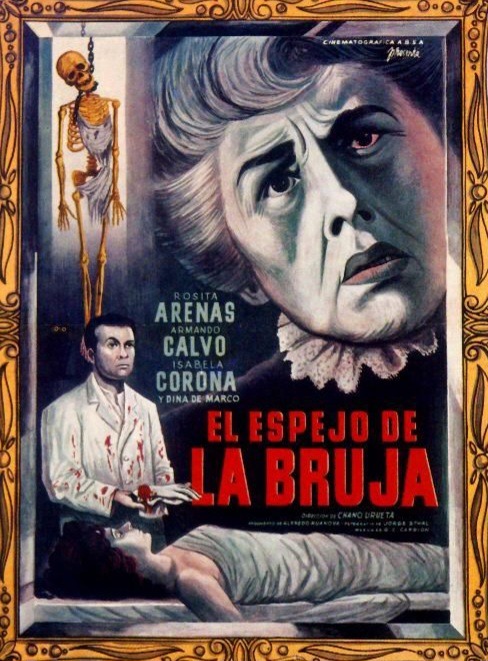
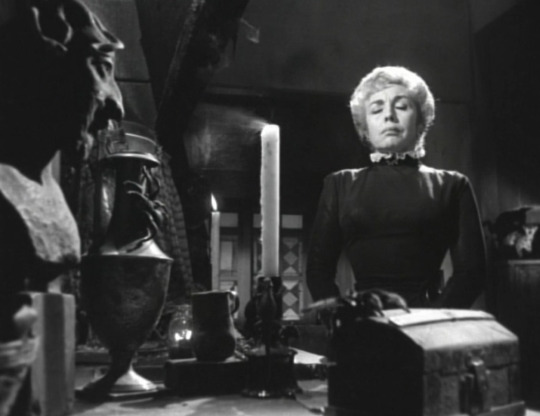


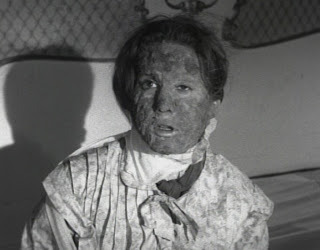
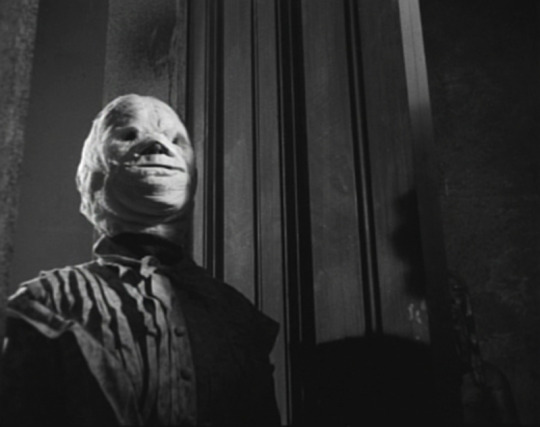
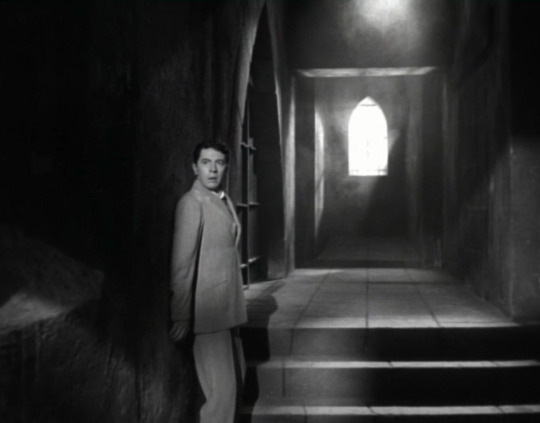
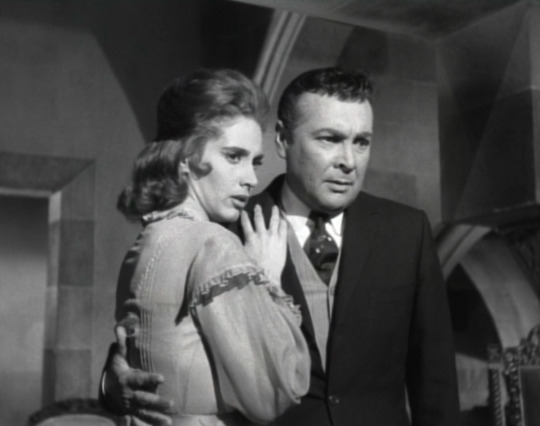

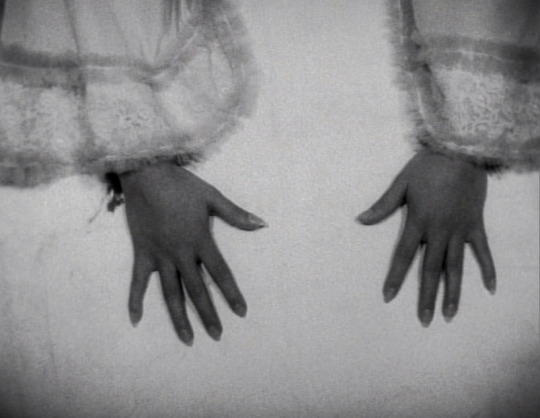
El espejo de la bruja (The Witch's Mirror, 1962)
"Elena. Elena!"
"What? Can't you see me?"
"I couldn't help you. You were marked by fate. I couldn't help you when you were alive, but I promise to avenge your death."
#el espejo de la bruja#the witch's mirror#horror imagery#mexican cinema#1962#chano urueta#alfredo ruanova#carlos enrique taboada#rosita arenas#armando calvo#isabela corona#dina de marco#carlos nieto#alfredo wally barrón#gustavo césar carrión#abel salazar#a very busy‚ slightly silly but really quite fun little film. starts off very modestly‚ a tight 4 character piece in a single location#a sudden and genuinely unexpected hard turn into mad scientist lunacy at around the halfway mark does open it up a little: more characters#more settings‚ more wild weirdness. still very much a budget picture but the scope is definitely larger‚ the overall vision on a grander#scale. some of the onscreen horror in this second half (particularly the medical gore) feels remarkably ahead of its time; truthfully there#were films beginning to push the envelope in that regard already‚ across the world‚ but there's something about the coldly dispassionate#clinical nastiness and the bloody detail here that feels a little jarring and like it's maybe at the wrong end of the decade#also of note are some intermittently breathtaking visuals‚ particularly work with light and shadow and silhouette (almost always#relating to Isabela Corona‚ stunningly backlit on a mist shrouded twilight). if only the film could have sustained those visuals for its#entire running time‚ this would surely be one of the most celebrated horror films of its era#still it is a lot of fun and absolutely crazy in the second half. well worth finding for nasty little horror freaks (aka me)
4 notes
·
View notes
Text
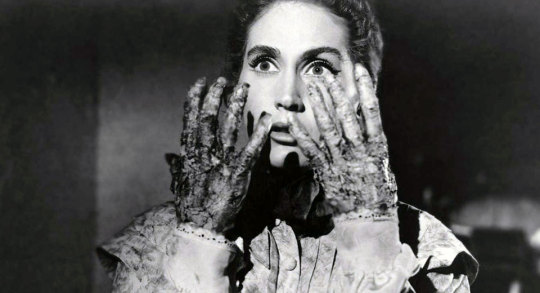
The Witch's Mirror, Chano Urueta (1962)
#Chano Urueta#Alfredo Ruanova#Carlos Enrique Taboada#Rosita Arenas#Armando Calvo#Isabela Corona#Dina de Marco#Carlos Nieto#Alfredo Wally Barrón#Jorge Stahl Jr.#Gustavo César Carrión#Alfredo Rosas Priego#1962
4 notes
·
View notes
Text
plot twist: i actually died many years ago this is just a queue
#queue#this is 2015#i posted this 10 years ago#i dont know if i am alive#if i am#i love you#i hope everything is alright#its literally january 21#im 16#akira and honey are my dogs#im so nerd#no se porque hablo en ingles#whatever#obama is the president#and enrique peña nieto
704K notes
·
View notes
Text
Opinión | Que no le digan… | Dobleces y algo más
Opinión | Que no le digan… | Dobleces y algo más #PeriodismoParaTi #SociedadNoticias #QueNoLeDigan @MarioA_Medina @Claudiashein @PartidoMorenaMx @GobiernoMX
Más allá de, si en el reciente encuentro telefónico entre la “presidentA” de México, Claudia Sheinbaum y Donald Trump, el “ganador” fue uno u otra… Por Mario A. Medina Más allá de, si en el reciente encuentro telefónico entre la “presidentA” de México, Claudia Sheinbaum y Donald Trump, el “ganador” fue uno u otra; si ella “dobló” a él; o el güero ganó; más allá de simples comentarios que parten…
#10 y 11 de septiembre; el intento#Adán Augusto López#Aeropuerto Internacional Felipe Ángeles#AIFA#Alejandro Murat#Altagracia Gómez Sierra#AMLo#Andrés Manuel López Obrador#Argentina#Arturo ZAldivar#Beatriz paredes#Carolina Viggiano#Cdmx#Citlalli Hernández#Claudia#Congreso de la Unión#Enrique de la Madri#Enrique de la Madrid#Enrique Peña Nieto. También#Felipe García Ascencio#Fernando Gómez Montt#Gerardo Esquivel#Gerardo Fernández Noroña#Ildefonso Guajardo#Irma Pineda#javier corral#José Ángel Gurría#José Gutiérrez Vivó#Josefina Vazquez Mota#Juan Ramón De La Fuente
0 notes
Text
Ante desafíos ambientales en Chiapas, asume Jorge Zapata titularidad de la PROFEPA
El nombramiento refuerza el compromiso de la institución con la protección ambiental y el equilibrio ecológico en la entidad. La Procuraduría Federal de Protección al Ambiente (PROFEPA) ha designado a Jorge Enrique Zapata Nieto como nuevo titular de la Oficina de Representación en Chiapas (ORPA). El nombramiento refuerza el compromiso de la institución con la protección ambiental y el equilibrio…
#biodiversidad#conservación ecológica#derecho ambiental#Jorge Enrique Zapata Nieto#Medio ambiente chiapas#PROFEPA Chiapas#protección ambiental#sostenibilidad
0 notes
Text
A Manhattan jury on May 30, 2024 convicted former President Donald Trump on charges he falsified business records related to the cover-up of his relationship with a porn star.
While this trial is now over, Trump still faces three other prosecutions: the state case against Trump and 18 others on charges they attempted to subvert the 2020 election in Georgia; the federal prosecution that charges Trump with conspiring to overturn the 2020 election; and a second federal prosecution on charges Trump illegally kept classified documents at Mar-a-Lago after his presidency ended and obstructed efforts to retrieve those documents.
While charging a former president with criminal offenses was a first in the United States with Trump, in other countries ex-leaders are routinely investigated, prosecuted and even jailed.
In March 2021, former French President Nicolas Sarkozy was sentenced to a year in prison for corruption and influence peddling. Later that year, a trial commenced of Israel’s longtime Prime Minister Benjamin Netanyahu related to breaches of trust, bribery and fraud; it is ongoing. And Jacob Zuma, the former president of South Africa who was charged with money laundering and racketeering, likely faces trial in 2025 after years of delay.
At first glance, prosecuting current or past top officials accused of illegal conduct seems like an obvious decision for a democracy: Everyone should be subject to the rule of law.
But presidents and prime ministers aren’t just anyone. They are chosen by a nation’s citizens or their parties to lead. They are often popular, sometimes revered. So judicial proceedings against them are inevitably perceived as political and become divisive.
Destabilizing prosecutions
This is partly why U.S. President Gerald Ford pardoned Richard Nixon, his predecessor, in 1974. Despite clear evidence of criminal wrongdoing in the Watergate scandal, Ford feared the country “would needlessly be diverted from meeting (our) challenges if we as a people were to remain sharply divided over” punishing the ex-president.
Public reaction at the time was divided along party lines. Today, some now see absolving Nixon as necessary to heal the nation, while others believe it was a historic mistake, even taking Nixon’s deteriorating health into account – if for no other reason than it emboldens future impunity of the kind Trump is accused of.
Our research on prosecuting world leaders finds that both sweeping immunity and overzealous prosecutions can undermine democracy. But such prosecutions pose different risks for older democracies such as France and the U.S. than they do in younger democracies like South Africa.
Mature democracies
Strong democracies are usually competent enough – and the judicial system independent enough – to prosecute politicians who misbehave, including top leaders.
Sarkozy is France’s second modern president to be found guilty of corruption, after Jacques Chirac in 2011 for kickbacks and an attempt to bribe a magistrate. The country didn’t fall apart after either conviction, and Sarkozy now faces additional charges related to alleged illegal campaign financing from Libya.
In mature democracies, prosecutions that hold leaders accountable can solidify the rule of law. South Korea investigated and convicted five former presidents starting in the 1990s, a wave of political prosecutions that culminated in the 2018 impeachment of President Park Geun-hye and, soon after, the conviction and imprisonment of her predecessor, Lee Myung-bak.
Did these prosecutions deter future leaders from wrongdoing? For what it’s worth, Korea’s two most recent presidents have so far kept out of legal trouble.
Overzealous prosecution versus rule of law
Even in mature democracies, prosecutors or judges can abuse prosecutions. But overzealous political prosecution is more likely, and potentially more damaging, in emerging democracies where courts and other public institutions may be insufficiently independent from politics. The weaker and more beholden the judiciary, the easier it is for leaders to exploit the system, either to expand their own power or to take down an opponent.
Brazil embodies this dilemma.
Ex-President Luiz Inácio “Lula” da Silva, a former shoeshine boy turned popular leftist, was jailed in 2018 for accepting bribes. Many Brazilians thought his prosecution was a politicized effort to end his career, but Lula was elected in October, 2022.
A year later, the same prosecutorial team accused the conservative former President Michel Temer of accepting millions in bribes. After his term ended in 2019, Temer was arrested; his trial was later suspended.
Both Brazilian presidents’ prosecutions were part of a yearslong, sweeping anti-corruption probe by the courts that has jailed dozens of politicians. Even the probe’s lead prosecutor is accused of corruption.
Depending on the perspective, Brazil’s crisis reveals that nobody is above the law or that the government is incorrigibly corrupt – or both. With such confusion, it becomes easier for politicians and voters to view leaders’ transgressions as a normal cost of doing business.
For Lula, a conviction didn’t end his career. He was released from jail in 2019 and the Supreme Court later annulled his conviction. Lula won the 2022 presidential race against Jair Bolsonaro, with Bolsonaro now indicted related to fraud in his dealing with the pandemic.
Stability versus accountability
Historically, Mexico has taken a different approach to prosecuting past presidents: It doesn’t.
During the 20th century, Mexico’s ruling Institutional Revolutionary Party, or PRI, established a system of patronage and corruption that kept its members in power and other parties in the minority. While making a show of going after smaller fish for petty indiscretions, the PRI-run legal system wouldn’t touch top party officials, even the most openly corrupt.
Impunity kept Mexico stable during its transition to democracy in the 1990s by placating PRI members’ fears of prosecution after leaving office. But government corruption flourished, and with it, organized crime.
That may be changing, though. In early August 2022, Mexican federal prosecutors confirmed that it had several open investigations into former PRI President Enrique Peña Nieto for alleged money laundering and election-related offenses, among other crimes, which appear to remain active.
Mexico is far from the only country to overlook the bad deeds of past leaders. Our research finds that only 23% of countries that transitioned to democracy between 1885 and 2004 charged former leaders with crimes after democratization.
Protecting authoritarians – including those who oversaw human rights violations – may seem contrary to democratic values, but many transitional governments have decided it is necessary for democracy to take root.
That’s the bargain South Africa struck as apartheid’s decades of segregation and human rights abuses ended in the early 1990s. South Africa’s white-dominated government negotiated with Nelson Mandela’s Black-led African National Congress to ensure outgoing government members and supporters would avoid prosecution and largely retain their wealth.
This strategy helped the country transition to majority Black rule in 1994 and avoid a civil war. But it hurt efforts to create a more equal South Africa. As a result, the country has retained one of the world’s highest racial wealth gaps.
Corruption is a problem, too, as former President Zuma’s prosecution for lavish personal use of public funds shows. But South Africa has a famously independent judiciary. Despite delays and appeals, Zuma’s prosecution continues, and he was prevented from contesting the presidency this year.
How mature is mature?
Israel is partly a testament to the rule of law – and partly a cautionary tale about prosecuting leaders in democracies.
Israel didn’t wait for Netanyahu to leave office to investigate wrongdoing. But several court processes were fraught with delays, in part because Netanyahu used state power to resist what he called a “witch hunt.”
Netanyahu tried unsuccessfully to secure immunity and stall while his Likud party cried foul. He was even reelected while under indictment. In December 2023, judges limited the number of trial days per week because of the war in Gaza, but the cases are ongoing.
With Trump’s Manhattan jury verdict, the process has revealed something fundamental about American democracy. As its repercussions play out, the verdict will likely be seen as both a matter of law – and politics.
#us#politics#nicolas sarkozy#benjamin netanyahu#richard nixon#jacob zuma#park geun hye#michel temer#jair bolsonaro#jacques chirac#gerald ford#enrique peña nieto
0 notes
Text

Haunted #65 (December 1982) cover by Enrique Nieto, reprinted from Monster Hunters #10 (October 1977).

6 notes
·
View notes